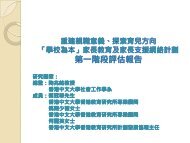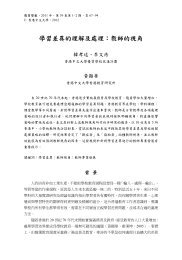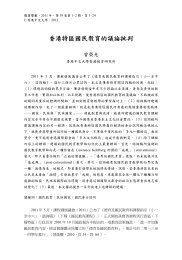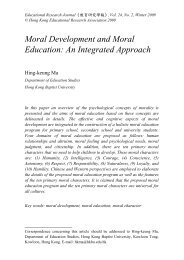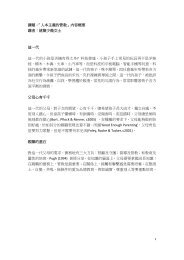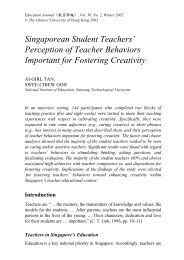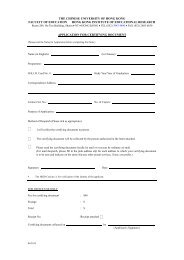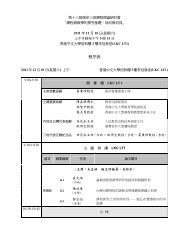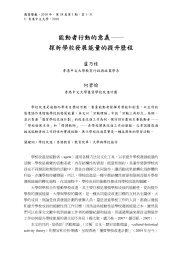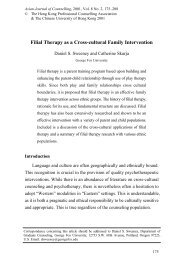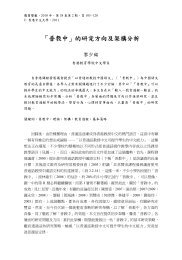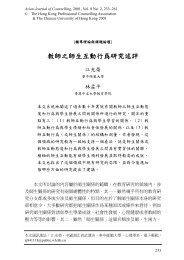Using School Evaluation Policy to Effect Curriculum Change? A ...
Using School Evaluation Policy to Effect Curriculum Change? A ...
Using School Evaluation Policy to Effect Curriculum Change? A ...
Create successful ePaper yourself
Turn your PDF publications into a flip-book with our unique Google optimized e-Paper software.
188 Shirley Sze-yin Yeung<br />
positive and negative effects, potential threats and weaknesses of the<br />
school evaluation policy. Specific attention was given <strong>to</strong> how effective<br />
school evaluation in effect makes curriculum reform manda<strong>to</strong>ry.<br />
Findings show how the local school curriculum can be controlled by<br />
bureaucratic preferences through SSE and ESR, and ultimately lost its<br />
ability <strong>to</strong> deal with diversity. It also shows how such forces impede<br />
teachers’ professional au<strong>to</strong>nomy and liberty.<br />
Key words: school evaluation, curriculum change, curriculum<br />
implementation<br />
Introduction<br />
Facing the challenges of globalization, technological development and<br />
social change, the Education Bureau in Hong Kong has revised the<br />
overall aims of education for the 21st Century (Education Commission,<br />
2000). Based on the revised educational aims, a curriculum reform was<br />
launched in 2001 (<strong>Curriculum</strong> Development Council, 2001). The<br />
curriculum reform is intended <strong>to</strong> offer a quality school curriculum that<br />
better equips students <strong>to</strong> meet the challenges of a knowledge-based,<br />
interdependent world. The recommendations stress the importance of<br />
helping students <strong>to</strong> learn how <strong>to</strong> learn, a learning-focused approach in<br />
teaching and curriculum construction, diversified curriculum and<br />
teaching strategies <strong>to</strong> suit the different needs of students, and so forth<br />
(<strong>Curriculum</strong> Development Council, 2001, pp. 10–11). To achieve the<br />
aims and visions of curriculum reform, schools and teachers are<br />
recommended <strong>to</strong> develop school-based curriculum <strong>to</strong> suit the needs of<br />
students. Moreover, teachers are strongly recommended <strong>to</strong> advance their<br />
teaching strategies <strong>to</strong>ward student-centered approaches.<br />
On paper, the curriculum reforms appear well designed, with<br />
recommendations that will help <strong>to</strong> prepare the next generation <strong>to</strong> live in<br />
a challenging century. However, despite the Education Bureau’s efforts<br />
<strong>to</strong> disseminate the reform proposals, local research shows that the<br />
reform is far from successful. For instance, findings from some local<br />
studies showed that teachers in Hong Kong implemented the studentcentered<br />
approach only superficially. <strong>Curriculum</strong> change and innovation,



